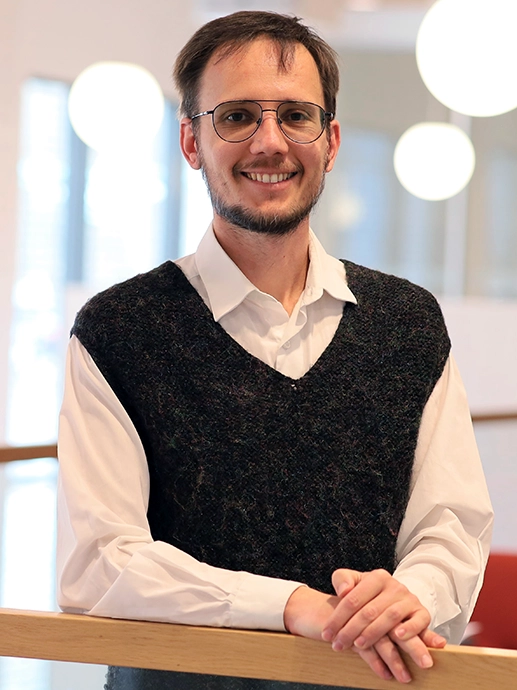
Aleksandr Andreev was born in Latvia, then still part of the Soviet Union. When he was nine years old, Andreev moved to the United States with his family. This is where he later on graduated with a Bachelor’s degree in Economics and Mathematics from Duke University and with a Master's degree in Economics from the University of North Carolina.
Worship traditions of the Orthodox Church
Even though Andreev chose to pursue two economics-degrees in college, he has always been interested in worship traditions of the Orthodox Church. This interest eventually led Andreev to Russia, where he went to study theology at the St. Petersburg Theological Academy in 2014.
“I wanted to turn to the sources. In Russia, I could find the source materials for the liturgical reform of the 17th century, preserved in the archives and libraries,” Andreev explains.
Five years after Andreev started to study theology in St. Petersburg, he defended a kandidat nauk (PhD) dissertation at St. Petersburg State University. This dissertation was on the reform of the liturgical chantbook called the Hirmologion in Moscow in the 17th century.
“I then stayed in St. Petersburg for three years to teach Church Slavonic, Greek paleography, and history of Slavic liturgy at the St. Petersburg Theological Academy. I also participated in a number of research projects involving liturgical books, both printed and manuscript,” Andreev says.
The manuscripts of the Horologion
In his PhD project at the University of Oslo, Andreev will focus on the book called the Horologion, also known as the Book of the Hours.
The Liturgy of the Hours that is recorded in the Horologion has been formative for the religious consciousness of believers in the Orthodox Church. In his PhD project, Andreev seeks to answer when and where the Horologion was translated from Greek into Church Slavonic – the liturgical language of all of the Slavic peoples.
“I also want to figure out what Byzantine prototypes were used for each translation,” he says, and explains that this is interesting not just for the history of Slavic Christianity, but also for the Byzantine Rite more broadly, since the Slavonic sources often preserve practices or texts that have not survived in the Greek original.
Two translations identified
So far, Andreev has identified two translations of the Horologion: one carried out in Bulgaria in the early 10th century, and one probably in Constantinople, in the late 11th or early 12th century.
His dissertation will consist of an edition of the text of these sources, accompanied by a study of their liturgy and language.
“I will try to answer why these two books were translated and what this tells us about liturgy both among the Slavs and in Constantinople. The hope is to eventually write a complete history of the Slavonic Horologion and daily prayer among the Slavic peoples more generally,” Andreev says.
An engaging academic environment
Andreev now looks forward to an engaging academic environment at the Faculty of Theology, to hear about the research of other fellows and professors, and to have colleagues critique and challenge his own work.
“I would also like to enjoy the beautiful Nordic nature and pick up a bit of Norwegian while I am here,” Andreev concludes.